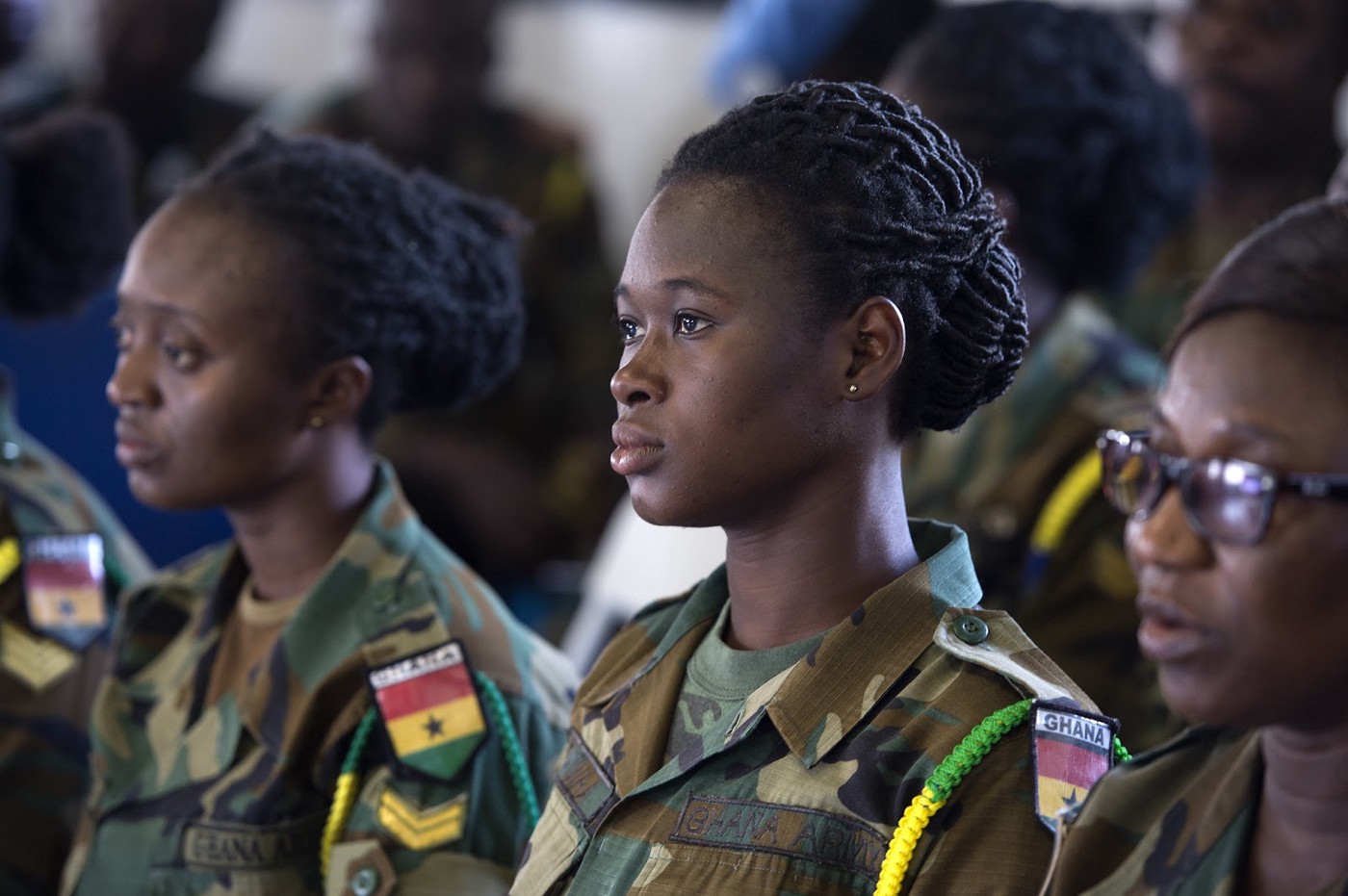Credit @UNPhoto
Declining global peace has negative implications for human development. The most recent Global Peace Index indicates an average decline in global peacefulness in at least 73 countries. Countries in conflict or recovering from conflict rank lower in UNDP’s Human Development Index. The negative development implication of declining peace is compounded by the response to the COVID-19 pandemic that triggered new forms of internal pandemic-related conflict and violence with growing tensions and civil unrest. This persistent and changing nature of conflict requires a pivot towards empowering peacemakers, protectors and peacekeepers in order to build and sustain peace.
Representation is often overlooked in peace processes
On International Day of United Nations Peacekeepers, as we honor men and women who serve as military, police or civilians in UN Peacekeeping operations, it is time to have a conversation about representation. Women, youth and representatives from groups who are disproportionately affected by conflict and violence are currently underrepresented in peace processes. Twenty-two years after the adoption of UN Security Council Resolution 1325 on women, peace and security, participation of women in peacekeeping operations and conflict resolution processes is still low. UN records show that in 2020, out of approximately 95,000 peacekeepers, women constituted only 4.8% of military contingents, 10.9% of formed police units and 34% of justice and corrections personnel in UN Peacekeeping missions. Currently, women in field missions constitute only 6.6%. Similarly, The Council on Foreign Relations indicates that during the period 2015-2019, women constituted only 14 percent of negotiators in major peace processes.
Women play an important role in sustaining peace
Having more women engaged in peace processes not only helps in achieving gender parity but is key to achieving the SDGs. Research shows that participation of women increases the probability of a peace agreement being implemented and lasting longer. According to the UN, women peacekeepers are important because they are perceived to be more ‘accessible’ than men hence have greater access to communities; they provide unique skillsets and alternative viewpoints that may contribute to overall operational effectiveness; they serve as role models and mentors to other women and girls especially in conflict and post-conflict settings.
Africa has made commendable progress in inclusion
In Africa, Ghana has made significant strides in increasing women’s participation in peace negotiations, peacekeeping activities, and preventive diplomacy. For instance, the Kofi Annan International Peacekeeping Training Centre in Accra supported by UNDP and the Japanese government offers courses based on the pillars of Resolution 1325.
Female Ghanaian peacekeepers are also at the frontline of several UN peacekeeping missions such as South Sudan and South Lebanon. Irene Larbi, a 25-year-old Ghanian woman serving in South Sudan is one of them. While this is her first peacekeeping mission, Irene was the youngest recipient of the UN Medal for outstanding service. She describes her work as being ‘challenging and exciting’. With 115 women peacekeepers, Ghana is the contingent with the highest number of women peacekeepers in the South Lebanon Mission.
Other countries like Liberia, Democratic Republic of Congo and Sierra Leone have also seen women act as agents of change by participating in dialogues for peace and advocating for women’s rights during and after the conflicts. In the 2016 African Human Development Report on Gender Equality, Nobel Laureate Leymah Gbowee describes how during the war in Liberia women mobilised for peace through advocacy, mass protests and sit-ins, military action and petitions. Their efforts contributed to the signing of the peace agreement that officially ended the war.
A forward looking agenda calls for collective action
Given the opportunity, African women can help build a peaceful, secure and resilient continent. To achieve true inclusion in sustaining peace, there is need for the following decisive actions at local, national and international levels.
- Actively involve women and youth in conflict resolution and post-conflict reconstruction as real agents of change by guaranteeing a ‘formal’ place at the peace table
- Empower women and their organisations to participate effectively in peace-building and peacekeeping initiatives by creatively and intentionally eliminating cultural, social and economic barriers
- Recognise outstanding achievements of women in the field including in leadership roles as this helps to encourage others
- Recruit and train more women and girls in national militaries to support national efforts and to be available for deployment in international peace operations.
Going forward, “Only inclusive engagement of both women and men is likely to lead to sustainable peace, as wide representation will better ensure that the emerging peace is owned by both females and males, and their needs and perspectives are included” (AfHDR, 2016). Similarly, “the achievements of the SDGs will be meaningless without the existence of peace as emphasised by SDG16” (UNDP Ghana).

 Locations
Locations



